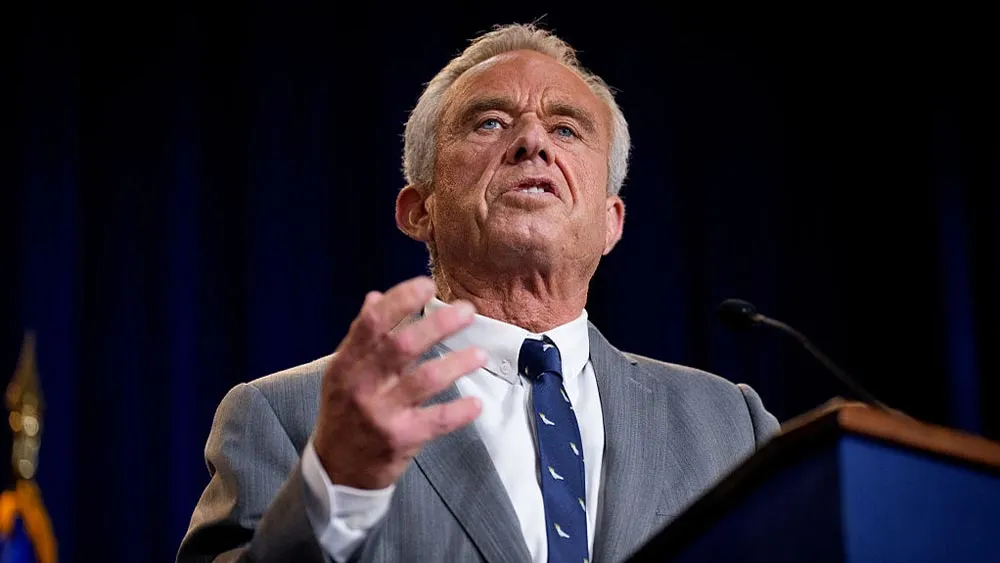July 31, 2012
Olympics 2012: Year of the Woman
Winnie McCroy READ TIME: 4 MIN.
LONDON (AP) - Claressa "T-Rex" Shields gives new meaning to the term girl power.
The 17-year-old middleweight from Flint, Mich., is known for powerful combos and lightning footwork, and is the youngest competitor in women's boxing, a new event at the London Olympics.
She's also one of a crowd of female athletes grabbing the limelight at the 2012 Games, which are quickly shaping up as a watershed for women's sports.
Cynics say Olympic organizers have been touting the coming of gender equality for years, but 2012 does bring several important crossovers.
For the first time, there are more women on the U.S. team than men, 269 to 261, and Russia's team, which is nearly as big, is also majority-female. Saudi Arabia has sent its first two women to the competition, and the games feature what in all likelihood is the most pregnant athlete to compete in an Olympics: Malaysian shooter Nur Suryani Mohamed Taibi, who is due to give birth to a girl any day now.
Even Britain's poster athlete for the Games is a woman - heptathlete Jessica Ennis, who in addition to appearing on countless London billboards also beams up at arriving visitors from a field along the Heathrow airport flight path. A 173-by-264-foot likeness of the telegenic star is painted on the grass there.
"This is a big moment for women's sports," said Shields, who was stretching and shadowboxing at a sweltering training facility near the Olympic Village, her hands wrapped tightly in pink boxing tape, an American flag do-rag on her head.
Boxing was the last sport organizers needed to add so that women compete in all Summer Olympic events, "and now they have," she said.
"How far have women come in the Olympics?" asked Karla Wolters, a retired professor and longtime coach of women's softball at Hope College in Michigan. "Put it this way: If Baron Pierre de Coubertin, the founder of the modern Olympics, knew that there were more (American) women than men in this year's London Olympics, I'm sure he would be rolling over in his grave. He was totally against having women in the Olympics."
Indeed, in the first games, in Athens in 1896, all 256 competitors were men. Women were allowed to compete four years later, with tennis player Charlotte Cooper the first champion. (Medals were not awarded until 1904.)
But the surge in high-profile women at the world's premier sports competition is a relatively recent phenomenon. The numbers began to pick up in the 1990s.
"I'm proud to say that the Olympic movement is living up to its own ideals of fair play and mutual respect," said Anita DeFrantz, a former Olympic rower and chair of the International Olympic Committee Women and Sport Commission. "All the sports on the program have women and men. I'm very proud where we are now that all the National Olympic Committees in the world will have women Olympians."
DeFrantz said more women took part in Summer and Winter Games from 1998 through 2010 than in all the competitions from 1900 through 1984 combined, and 45 percent of the 10,800 athletes in London are women, a record. For the first time, every nation will have at least one female athlete.
While the Dream Team men's basketball squad, American swimmer Michael Phelps and Jamaican sprinter Usain Bolt are still likely to generate the biggest headlines, female athletes such as American hurdler Lolo Jones and Italian swimmer Federica Pellegrini aren't far behind. And in some of the less-followed sports, female athletes are the main story.
That is certainly the case in shooting, where fans are holding their breath to see whether Malaysia's Taibi will give birth before competing in her specialty, the 10-meter air rifle competition. And in weightlifting, where American superheavyweight Holley Mangold has captured hearts with her irreverent, sometimes bawdy comments on living with obesity.
And then there's Zara Phillips, the 31-year-old granddaughter of Queen Elizabeth II, who is competing in equestrian and expecting a few royal fans to show up to cheer her on.
Some women are making headlines off the court as well.
Victoria Pendleton, another British hometown girl, has parlayed her looks and growing fame into a marketing bonanza, appearing in shampoo ads and a racy lingerie shoot in which she proclaimed herself proud of her ultra-muscly thighs. One look at the photos and it's easy to see why.
And U.S. women's soccer goaltender Hope Solo, who is pitching a memoir she just wrote, turned heads with some comments to ESPN the Magazine about widespread sex in the athletes' village during the Beijing Olympics.
Still, there have been several reminders in the lead-up to the competition that total equality hasn't arrived just yet.
Australia booked its women's basketball team to fly to the games in coach, while the men got business-class treatment. Ditto for Japan's women's soccer squad, which had to squeeze into economy despite the fact they are world champions, while the men, who are not expected to medal, stretched out at the front of the plane.
And DeFrantz said there is much work to do before women have an equal say in the business of the games. The 100-strong IOC has only 14 women, though one, former hurdles champion Nawal El Moutawakel of Morocco, on Thursday became the first woman to be elected a vice president.
"On the field of play, we are nearly there," DeFrantz said. "It's in the decision-making sense - in the rooms and halls - that we have more work to be done."
Tennis legend Billie Jean King, one of the world's leading voices for women's sports, said the strides made by American female athletes stem directly from Title IX, the 1972 U.S. law that banned sex discrimination in educational programs - including sports - that receive federal funds.
"What we are seeing with the London Olympics is a reflection of the growth and impact of Title IX," King said, adding that American women might not only outnumber men at the Games - they could very well out-medal them, too.
"We now have a stronger foundation for future generations of female Olympians," she said, "and we need to remain committed to sustaining this movement and the progress we are making, here in the USA and globally."
____
Associated Press reporters Graham Dunbar in London and Melissa Murphy in New York contributed to this report.
Winnie McCroy is the Women on the EDGE Editor, HIV/Health Editor, and Assistant Entertainment Editor for EDGE Media Network, handling all women's news, HIV health stories and theater reviews throughout the U.S. She has contributed to other publications, including The Village Voice, Gay City News, Chelsea Now and The Advocate, and lives in Brooklyn, New York.







